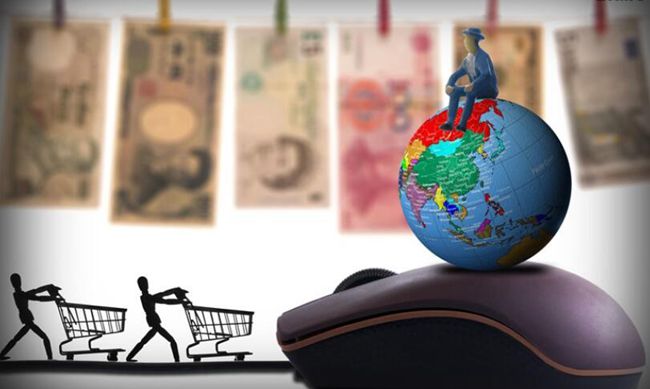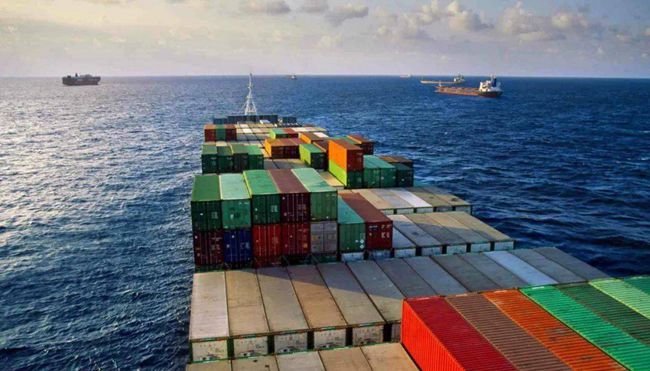The National Bureau of Statistics (NBS) released the latest data showing that the producer price index (PPI) rose more than the previous month and year on year. In particular, PPI rose 1.2 percent month-on-month, 0.5 percentage points higher than last month. Year-on-year growth was 10.7 percent, 1.2 percentage points higher than last month. In September, the price increase of industrial products continued to expand, driven by higher prices for coal and some energy-intensive industries. The impact of the new price hikes was estimated at 8.9 percentage points of the 10.7 per cent year-on-year PPI growth in September, up 1.2 percentage points from the previous month.
At the same time, mainly affected by the continued decline of pork prices, the national CPI (consumer price index) and PPI scissors gap continued to expand, also set a new record. Yi Gang, governor of the People's Bank of China, said at the G20 finance Ministers and central bank Governors meeting online that China's inflation is generally moderate, and its prudent monetary policy will be flexible, precise, reasonable and moderate to support high-quality economic development.
However, according to the reporter's observation, this round of imported inflation and 2008 similar situation, but also superimposed on the special factors of the global epidemic, really to foreign trade enterprises, especially rely on the processing of manufacturing enterprises no small pressure. If it cannot be transmitted outward through export and other means, China's manufacturing industry will inevitably face the awkward situation of "losing money and making money".

Inflation is concentrated at the production end and profits are squeezed
Chongyang, renmin university of China financial research institute researcher, cooperative research director liu ying in China trade news reporter interview, producer prices rising demand both lift output gap, there is also a supply side impact factors are at work, but commodity prices are denominated in dollars currency factor is the driving force behind rising producer prices. Some countries unlimited quantitative easing monetary policy brought by the amount of money continues to push up the price of commodities, such as the international oil price skyrocketed this year, copper prices nearly doubled, steel prices climbed.
The acceleration of PPI upward since this year is mainly reflected in two aspects:
First, under the influence of domestic macroeconomic policies, such as production restriction and dual control of energy consumption, energy prices in some energy-intensive industries have been rising all the way.
Second, influenced by the quantitative easing policies of major countries around the world, with the slow recovery of the global economy, global inflation has been on the rise, and the prices of major commodities, such as crude oil and non-ferrous metals, have continued to rise.
However, the spread of the pandemic globally and the effective control of the epidemic at home have also added additional special factors to this bout of inflation. On the one hand, China's domestic economy has long since returned to normal operation, with investment and consumer demand far better than that of most major economies still struggling with the epidemic. On the other hand, manufacturing capacity in other parts of the world has been shut down due to the pandemic, and a large number of orders have been sent back to China, which has made Chinese manufacturers need to import more raw materials, which has undoubtedly contributed to the intensity of this round of inflation.
"We're down 50 per cent on flat revenues." A person in charge of the overseas business of a zhejiang enterprise laments that, especially in the household appliances, tools, auto parts and manufacturing industries where raw material costs are relatively high, the decline in profit margins is more obvious.
Meanwhile, the shipping industry, which is closely related to international trade, is also not helpful. In order to prevent and control the spread of COVID-19, some countries and ports are constantly updating and implementing relevant restrictive measures, causing a series of problems such as shrinking international shipping business, overstocking of cargo and difficulties in port docking.
This round of inflation so far does not appear to have a profound impact on the end consumption sector. According to the national Statistics Administration (NBS), the MONTH-on-month CPI was unchanged from 0.1% last month, with non-food prices rising 0.2% from 0.1% last month, contributing about 0.16 percentage points to the CPI increase. On a year-on-year basis, the CPI rose 0.7 percent in September, 0.1 percentage points lower than the previous month. Non-food prices rose 2.0 percent, 0.1 percentage points higher than the previous month, contributing 1.65 percentage points to the CPI increase. Speaking at the financial Street Forum 2021 annual meeting, Yi said China's economy has been developing steadily this year, with GDP growing by 9.8 percent year-on-year in the first three quarters and CPI rising modestly, and the targets set out in the government work report are achievable.

Policy to master "time efficiency" enterprises should stay together for warmth
From the current situation, PPI is stronger than market expectations and will remain high in the short term. Liu said the PPI and CPI will remain high to varying degrees as economies around the world recover and there are large output gaps. Imported inflationary pressure from higher commodity prices will challenge monetary and fiscal policies, although China's economy is in a normal range and macroeconomic policies need to be better timed.
Reporter noted that although the current consumption end by PPI upsurge is not obvious. However, it does not rule out that PPI will continue to shift to the consumer end after hovering high. After all, the high price of industrial goods makes the corresponding downstream products more expensive, which in turn passes through to the consumer end. Especially in the context of the current domestic consumption continues to be depressed, it may also lead to a series of chain reactions such as unsalable upstream merchants and capital chain fracture.
On the one hand, we should adhere to an independent monetary policy, make reasonable, appropriate and precise adjustments through a prudent monetary policy, and make effective adjustments through a flexible exchange rate mechanism to hedge against imported inflation pressure. On the other hand, it is necessary to further optimize the cross-border trade and business environment, better serve foreign trade enterprises, increase financial support, reduce loan interest rates and financing costs, and help enterprises reduce trade risks and relieve their financial pressure.
"In addition, China's manufactured goods have a great impact on prices in some developed countries. The US Trade Representative also announced recently that it will launch targeted tariff elimination procedures. If china-us economic and trade cooperation can be accelerated and tariff elimination procedures can be implemented as soon as possible, it will be beneficial to both import and export enterprises." Liu ying said.
For foreign trade enterprises themselves, the current pressure is self-evident. It is more important to stay together and avoid vicious competition. Especially for internationally competitive industries, Chinese enterprises should unite and properly raise export prices. We should also increase investment in RESEARCH and development and innovation, promote innovation in raw materials, technologies, products and markets in an all-round way, and strive to control the supply chain independently. At the same time, lean management should be adopted to improve the production coordination of upstream and downstream enterprises and increase the competitiveness of the industrial chain and supply chain.
"At present, industry associations should give more play to their own functions, strengthen their negotiating ability in the international arena, form a unified pricing mechanism, coordinate Chinese enterprises to participate in orderly competition, solidarity and cooperation, so as to form a joint force to deal with external challenges." Liu ying said.

